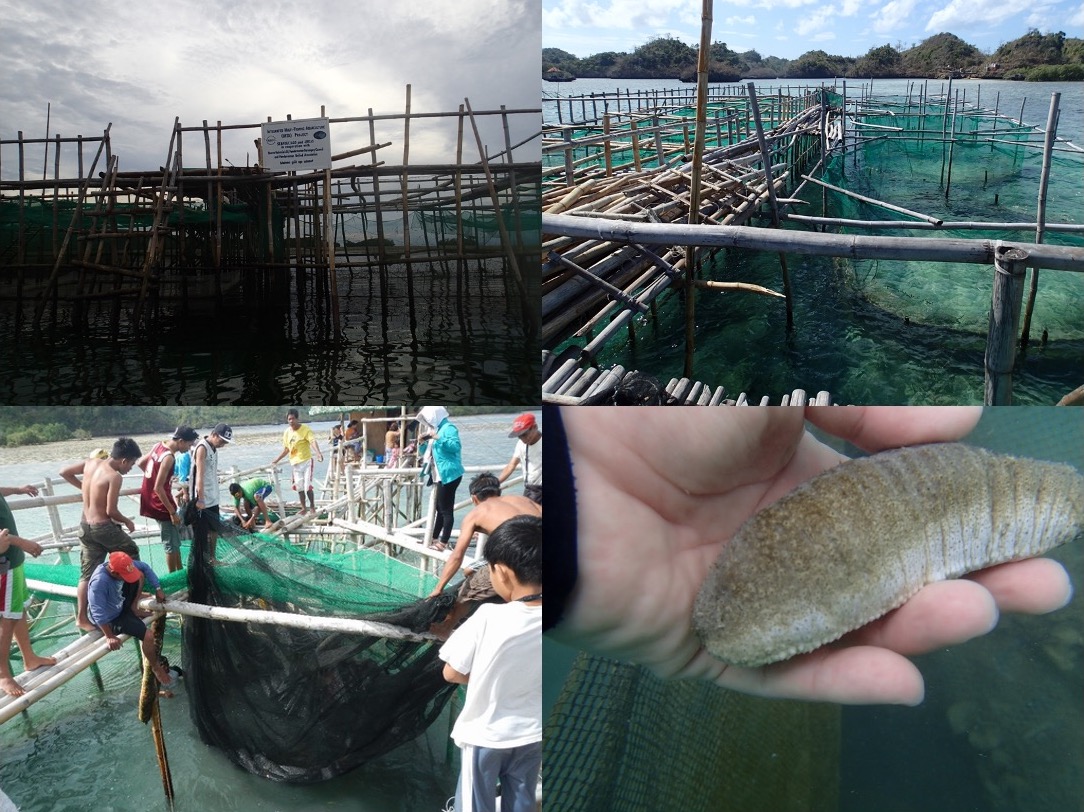Aquaculture is one of the fastest growing food production industries. Currently, fish farming accounts for about 50% of the world's aquaculture production. However, while aquaculture provides a solution to the growing demand for fish production, it is also a major source of environmental problems due to water pollution associated with the extensive use of commercial feed, fish waste, feed input residues, and other waste products. Therefore, it is necessary to apply sustainable aquaculture methods with less environmental impact in the future.
The Integrated Multi-Trophic Aquaculture (IMTA) is an aquaculture technology combining organisms that are at different trophic levels in the food chain, thus creating a balanced system that effectively utilizes the nutrients discharged from fish feeding and aquaculture. Moreover, it promotes environmental purification, economic stability, and social acceptance, with the aim of developing sustainable aquaculture.
In 2011, JIRCAS, in collaboration with the Aquaculture Department of the Southeast Asian Fisheries Development Center (SEAFDEC/AQD) in the Philippines, launched the IMTA research project aimed at promoting sustainable and equitable production of aquatic products in the Asian monsoon region. The first phase of the project was implemented for five years as "Development of Integrated Multi-Trophic Aquaculture Technology for Livelihood Improvement”. The project was renewed for another 5 years and moved to the second phase “Demonstration and Verification of Sustainable and Efficient Aquaculture Techniques of Multiple Organisms”. In August 2019, the “JIRCAS-SEAFDEC Joint Workshop on IMTA Research - Understanding Current Challenges and Future Prospects” was held to review the results of the first and second phases of the project, evaluate the applicability of IMTA as a new aquaculture system, and discuss future research plans and ways forward.
This proceedings is a compilation of the 10-year achievements in IMTA research conducted by JIRCAS and SEAFDEC/AQD researchers and their collaborators, covering topics such as ecological characterization of target species, evaluation of environmental impacts, and socio-economic analysis. It is hoped that the research outputs obtained so far will provide reference information that can be useful to researchers, fisheries administrators, aquaculture farm owners, and small-scale farmers to stimulate further interest that may lead to the dissemination and practical utilization of IMTA. In addition, with the growing importance of environmental conservation, it is also hoped that the development of IMTA, rooted in harmony with the environment, will lead to the production of sustainable and equitable production of aquatic products in tropical coastal areas.
Proceedings of the JIRCAS-SEAFDEC/AQD Joint Workshop on Integrated Multi-Trophic Aquaculture (IMTA) Research (SEAFDEC Repository) https://repository.seafdec.org.ph/handle/10862/6335

